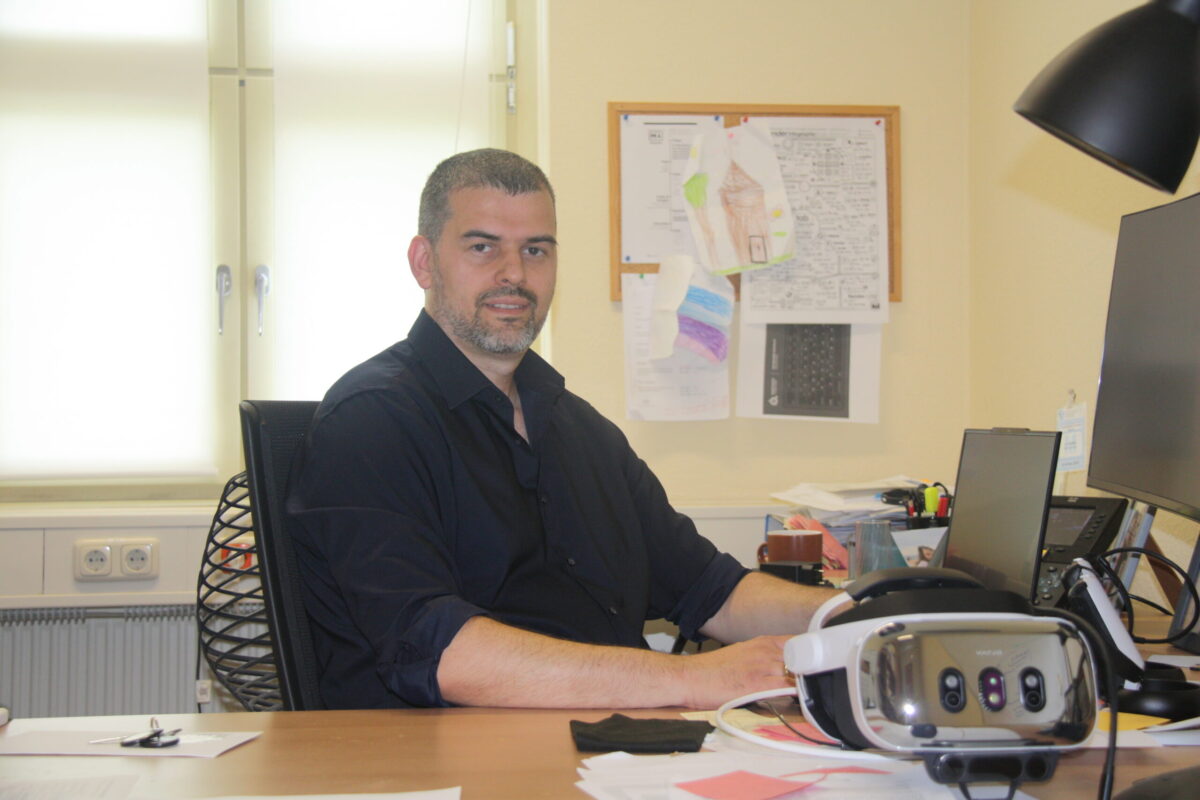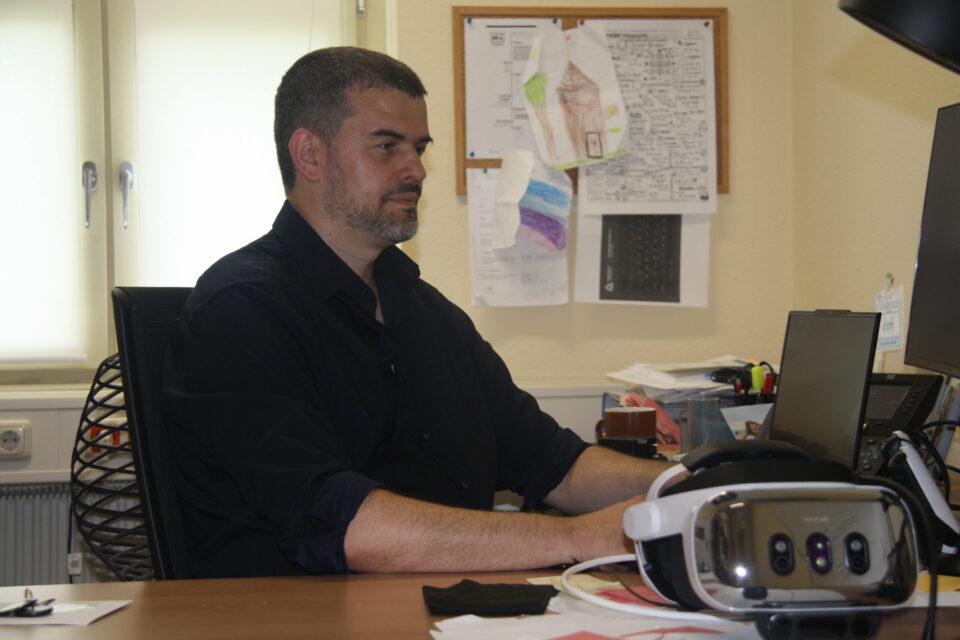Many subjects are not tailored to the needs of modern agricultural production and market trends
 Interview by: Dragan Nikolić
Interview by: Dragan Nikolić
Our young expert, Dr. Ivan Đurić, an agricultural economist who obtained his PhD from Martin Luther University in Germany, does not forget Serbia either personally or professionally. During the season of traditional disputes between domestic agricultural producers and the ministry over purchase prices of agricultural products, we spoke with him about the challenges of domestic agriculture and Western practices that could be applied here.
As someone who has studied and lives in Germany, how familiar are you with agricultural economics in Serbia?
My interest in events in Serbia, especially in the sphere of agriculture, has never waned. Since I came to Germany (2008), my doctoral dissertation focused on the impact of agrarian measures on price movements along the food chain from wheat to bread in Serbia. Later, my long-standing collaboration on various projects with Prof. Dr. Vladeta Zarić from the Faculty of Agriculture in Belgrade, and later with Dr. Bojan Matkovski from the Faculty of Economics in Subotica, significantly contributed to my better understanding of agroeconomic measures in Serbia. Since 2023, as a member of the Society of Agricultural Economists of Serbia, and through direct collaboration with Dr. Tatjana Brankov, I have been extensively involved in transferring acquired knowledge by presenting various studies related to food prices in Serbia and the impact of agrarian measures on them.
Currently, the issue of raspberry purchase prices is very topical here. This happens every year and every season, not just with raspberries. What do you think is the reason for dissatisfaction among raspberry growers (and other agricultural producers)?
I believe three things are key for most agricultural producers: weather conditions, liquidity, and labor (during the season). A large number, around two-thirds of cold storages, struggle with liquidity. To repay loans, raspberry growers often lower prices just to sell some of their produce. Adverse weather conditions further contribute to lower yields than expected, hence lower expected income. On the other hand, there is intense competition for unprocessed goods in export markets, especially since the Covid-19 pandemic. Additionally, the structure of traditional buyers has changed, with a decreasing share from retail chains (e.g., German importers), and the HoReCa sector has almost ceased. Therefore, there is significant pressure on agricultural producers and processors to maintain liquidity.
The role of the state is crucial, especially in providing a platform for negotiating raspberry purchase prices and strategically protecting the domestic market. The situation from 2003, when a large quantity of Ukrainian raspberries was imported into Serbia, significantly affected domestic market prices, and it seems likely to influence price trends this year as well.
 Does our state and government understand the significance of agricultural production? Why does it seem like agriculture, despite being the largest producer and exporter, is always somewhat humiliated and neglected?
Does our state and government understand the significance of agricultural production? Why does it seem like agriculture, despite being the largest producer and exporter, is always somewhat humiliated and neglected?
I am certain that our state understands the importance of agriculture, especially since this sector is one of the most significant for the economic development of our country. Moreover, agricultural exports contribute significantly to the state budget. The problem is systemic and begins with the education of skilled personnel. The number of students enrolling in agricultural faculties has been declining year after year. Many subjects are not tailored to the needs of modern agricultural production and market trends. Furthermore, our students have almost no practical experience during their studies, which significantly hinders their job prospects.
My doctoral dissertation focused on the impact of agrarian measures on price movements along the food chain from wheat to bread in Serbia
On the other hand, qualified personnel are more inclined towards the business sector, which offers relatively better financial conditions compared to the scientific sector and the Ministry of Agriculture, the key players in shaping and implementing agricultural policy. Unfortunately, frequent changes in ministers responsible for the agricultural sector make it difficult to make long-term (strategic) decisions that are necessary for this sector.
Are there practices in Germany (and Europe) that could be easily and quickly applied here?
Building on the previous answer, I would say that acquiring practical knowledge during studies is something long established in Germany and could be relatively quickly and easily implemented in Serbia. Of course, it requires the willingness of the business sector to participate, or even better, initiate such a process. Regarding the entire agricultural sector, it’s challenging to make direct comparisons because Europe operates under rules defined by the Common Agricultural Policy (CAP). Serbia is still in the process of accession to the EU, so we can expect many changes in this sector. Frankly, I don’t see why we should strictly adhere only to regulations defined by the CAP, especially since we are the only country in Europe with open doors to BRICS countries. I believe we have the opportunity to consider a broader perspective and adopt best practices from around the world that could make us more competitive not only in Europe but also provide us with opportunities to access “new” markets.
In Serbia, there’s a serious debate, and society is divided over mining. If agricultural production is among the most affected by mining, why isn’t there more outcry? I don’t see a strong voice against lithium mining coming from major companies in the agricultural sector, as if their profit isn’t directly threatened.
The process of lithium mining goes beyond any sectoral issue and represents a problem for the entire country. It’s interesting that some EU countries like Germany, which also have lithium reserves, ban lithium extraction due to environmental concerns. This alone should underscore the seriousness of this issue. As for the lack of reaction from representatives of the agricultural industry, I believe the political situation in Serbia and the official government stance on this issue need to be considered.
How healthy is the food industry today? Can we trust the quality of food produced here?
From an economic perspective, the unpredictable business environment and limited access to favorable credit lines significantly impact the success of the food industry. Additionally, the unfavorable relationship between the food industry and agriculture (raw material suppliers), which lacks long-term contracts and often involves breaches of contractual obligations, should be considered.
On the other hand, thanks to numerous standards implemented in the food industry, especially the legally mandatory HACCP (Hazard Analysis Critical Control Point) since 2009, the health safety of products should not be questioned. It’s also important to note that strict rules govern the import and export of food products, where any non-compliance would significantly affect a company’s reputation and be sanctioned by state authorities. Therefore, I believe we should indeed trust the quality of food produced in Serbia.
 How much have digitalization and new technologies contributed to the development of agriculture in Serbia? We seem fascinated by online markets for organic food from small local producers. Without diminishing their importance, are there other benefits?
How much have digitalization and new technologies contributed to the development of agriculture in Serbia? We seem fascinated by online markets for organic food from small local producers. Without diminishing their importance, are there other benefits?
Digitalization has significantly permeated every aspect of the Serbian economy, inevitably including agriculture. The drivers of digitalization are primarily large companies focused on exporting agricultural products. This isn’t surprising as implementing digitalization typically requires substantial initial financial investment.
The number of students enrolling in agricultural faculties has been declining year after year
As seen globally, the initial steps in implementing digital technologies in agriculture are often led by the IT sector. Therefore, it’s not surprising that the most common applications involve platforms directly connecting producers and consumers through online stores. In these cases, the emphasis tends to be more on platform functionality rather than agricultural expertise. Nonetheless, using these platforms can lead to increased revenue for small family producers who cannot compete with large firms dominating retail chains.
For the greater acceptance of digital technologies in production itself, it’s crucial to invest in educating young professionals, training existing workers, and developing the necessary infrastructure to enable the practical application of technologies in agriculture (e.g., improving internet availability in rural areas).
Biography
Ivan Đurić obtained his PhD in agricultural economics from Martin Luther University Halle-Wittenberg in Germany. With over 17 years of experience, he has focused on research in innovation within the agri-food sector, business models of food value chains, agricultural policies, and trade. Since 2018, he has been coordinating a research group dedicated to agricultural digitalization, engaged in projects such as:
- “Digital Transformation of Chinese Agriculture – Resources, Trade, and Food Security” (DITAC, 2021-2023);
- “Determinants of Consumer Trust in Agri-Food Systems in the Western Balkans: Links between Trust and Transparency through Digital Solutions as a Path to Strengthening Supply Chain Competitiveness” (eTrust-Food, 2018-2023);
- “Digitalization in Agriculture – Impact of Social Media on Marketing Agri-Food Products” (AgriDigital, 2019-2021).
Since 2023, Ivan has also been leading the IAMO XR Lab, focusing on immersive digital technologies (AR, VR, and MR) for analyzing consumer behavior and innovation adoption in the agri-food sector. Associated projects include FoodScopeVR (DAAD, 2023-2024) and SecureFood (EU Horizon, 2024-2027). He is a member of the Society of Agricultural Economists of Serbia and the CIS network of agricultural trade experts (ATnet) at FAO. Ivan also represents IAMO in the Fraunhofer-Leibniz initiative on digitalization.
